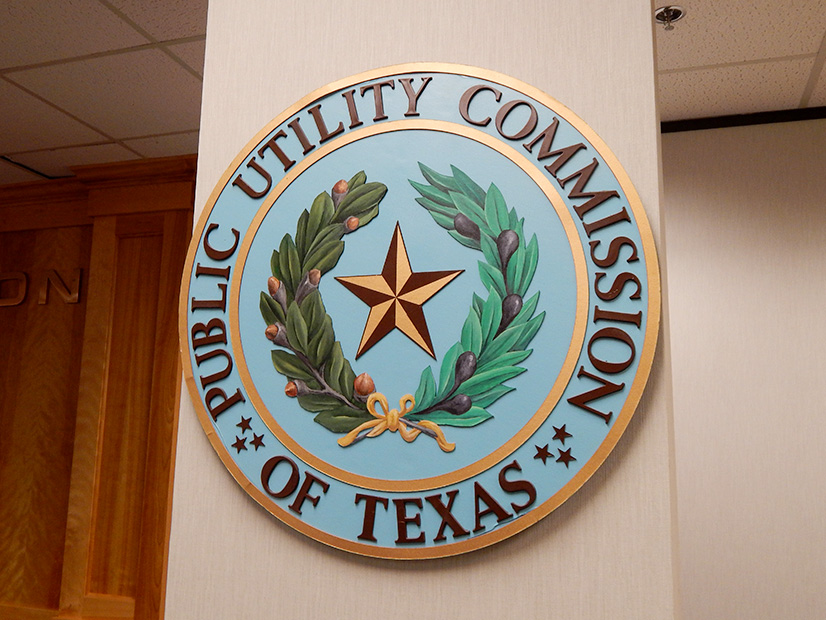The Texas Public Utility Commission said in a filing Tuesday that it has selected California firm Energy and Environmental Economics (E3) as its independent consultant to aid it in reviewing and analyzing new designs for ERCOT’s wholesale market.
According to the filing, E3 is expected to recommend implementation strategies and support the commission in developing business requirements for the strategies. It will work with the PUC’s Phase II market designs and structure changes that the commission says are “intended to ensure sufficient dispatchable generation resources … to meet the reliability needs of the ERCOT power region during a range of extreme weather conditions and net load variability scenarios” (53237).
The commission chose E3 over Potomac Economics, which also serves at ERCOT’s Independent Market Monitor. They were the only two firms to respond to the PUC’s request for proposals.
However, E3 is also behind one of the market structures under the commission’s consideration. Under a contract from NRG Energy and Exelon — both ERCOT market participants — the consulting firm laid out in a white paper a load-serving entity reliability obligation (LSERO) structure it said would directly address resource adequacy concerns by introducing a formal reliability standard and a mechanism to ensure sufficient resources meet this standard. (See Study Suggests Texas LSEs Can Provide Reliability.)
The contract includes a section on conflicts of interest that require E3 to certify to the PUC “that no existing or contemplated relationship exists between [the] contractor and another person or organization” that will constitute a conflict. The PUC defines that as a “situation in which the concerns or aims of the contractor are incompatible with the concerns or aims of the PUC acting in the public interest.”
Commission spokesman Rich Parsons pointed out the contract “clearly stipulates” E3 working conditions “under the strict oversight of PUC staff … to ensure it is conducted solely in the best interest of the [PUC] and the people of Texas.”
“E3 was selected through a competitive RFP bid process open to any qualified respondents and in full compliance with the state’s procurement laws and procedures,” he said in an email. “Through this competitive process, it was determined E3 presents the best value to Texans for this project.”
The firm is expected to follow mitigation strategies laid out by the commission and to make a “good-faith effort” to identify any ERCOT market participants and list them as potential conflicts, the contract says.
Even so, stakeholders are expressing concerns with the optics of hiring a consultant that has proposed one potential market structure to review it and others.
“It’s absurd on its face,” said Stoic Energy President Doug Lewin, who advocates for energy efficiency and demand response. “The proposal the consultant and [PUC Chair Peter Lake] favor is a non-transparent capacity market [that] … would cost customers billions of dollars, reduce competition and give an advantage to incumbent generators. I’m not sure why the [PUC] couldn’t find a truly independent evaluator of the proposals.”
Indeed, Lake has seemed to favor the LSERO in several commission meetings and workshops, with the other three commissions offering some pushback. However, the E3 proposal has been included among up to five specific proposals under the PUC’s market design “blueprint” that the commissioners agreed to in December. (See PUC Forges Ahead with ERCOT Market Redesign.)
“The proposals to be considered should place a requirement on LSEs to either purchase an energy credit, a type and quantity of energy resources, or prove its ability to meet the demand of the customers that it has contracted to serve,” the contract says.
E3 will analyze the proposals’ cost to the ERCOT market and the financial effect on consumers. The firm must review the various proposals; analyze and advise PUC staff on appropriate reliability standards and metrics to reach a certain level of dispatchable generation; provide estimated implementation and consumer-cost analysis associated with the blueprint’s market changes; provide potential dispatchable generation investment outcomes associated with the changes; and provide reliability impact analysis.
The contract is not to exceed $364,000. Hourly rates for the E3 team will vary from $725 (managing partner) to $250 (associate).
The PUC’s goal is to have a turnkey solution for its approval that can be fully operational and functioning in the ERCOT footprint within a year of regulatory adoption.
The commission references in the contract state legislation passed last year that requires it to establish a reliability standard that meets ERCOT’s needs; annually assess the quantity and characteristics of the reliability services needed to perform under extreme weather conditions; procure sufficient ancillary or reliability services during low non-dispatchable power production periods; develop qualifications and performance requirements for providing those services, including appropriate penalties for failure to provide the services; and sizes the services procured to prevent prolonged rotating outages from net load variability in high-demand and low-supply scenarios.




